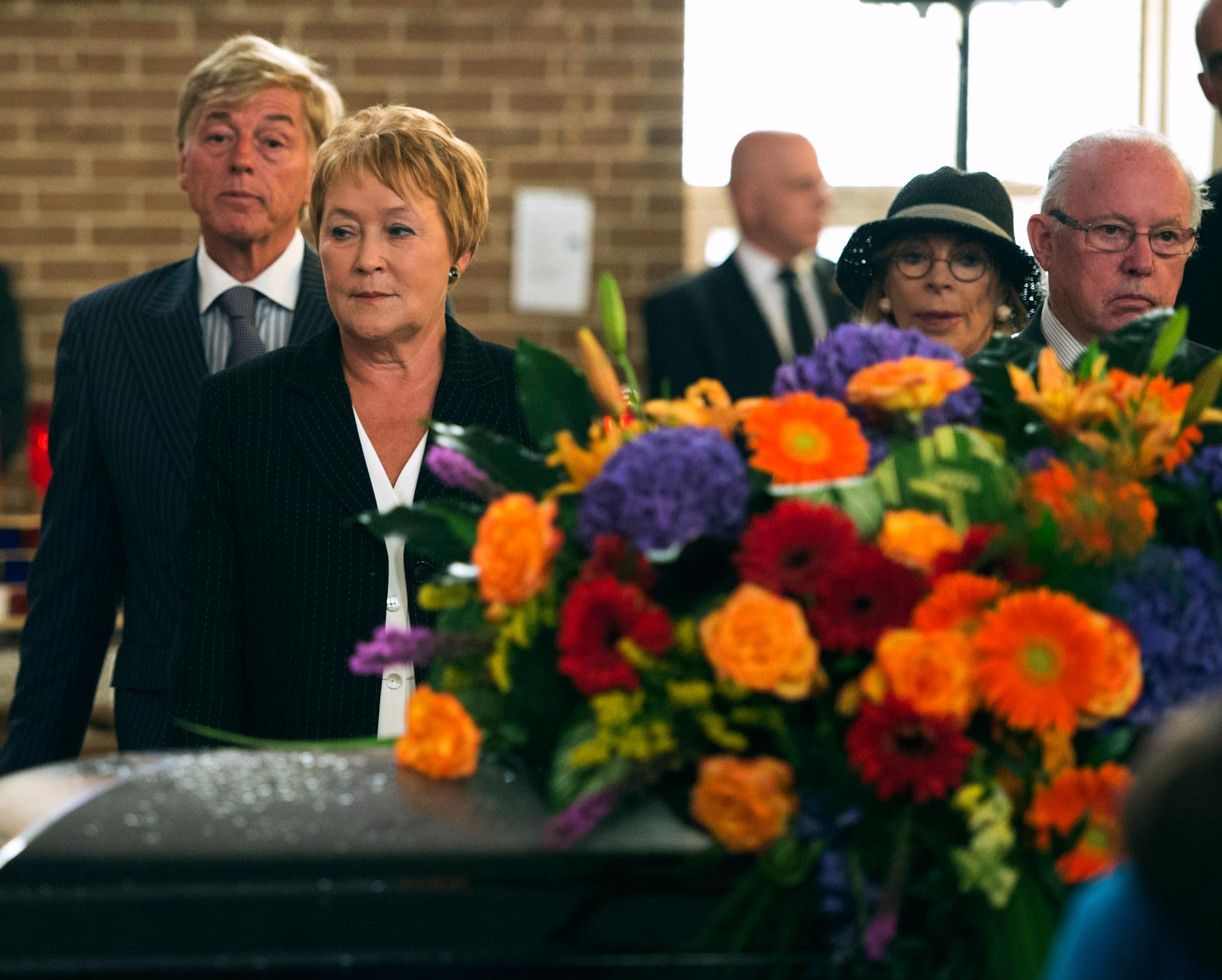Separatists take power in Quebec — but no signs of pushing for separation
Quebec Premier-elect Pauline Marois, second from left, and former Quebec Premier Bernard Landry, right, attend funeral services for Denis Blanchette, in Montreal Sept. 10, 2012. Richard Bain is charged with first degree murder in the shooting death of Bla
The gunman who is accused of killing one person and injuring another last week at a rally for the newly elected premier of Quebec is expected back in court next month.
Richard Henry Bain opened fire at a victory rally for Pauline Marois, whose separatist Parti Quebecois party won the provincial election by a slim margin. The alleged shooter yelled “The English are waking up!” as police dragged him out of the rally.
Quebec is a majority French-speaking province where tensions over language issues have resulted in two referendums — both unsuccessful — on separating from Canada. Parti Quebecois has long backed those amendments but, at least right now, creating a separate French-speaking country from the province of Quebec is off the table — no matter what Bain may have said.
Philip Authier, senior political writer at The Montreal Gazette, said Bain fits the classic profile of the “lone wolf” that is so often responsible for shootings and other killings.
“He’s basically a guy who lives in the woods and runs a fishing camp,” Authier said.
Bain has, Authier said, had a history of run-ins with the government over zoning issues and has a history of mental health problems, but there’s no indication that he’s linked with any of the anti-separatist parties that oppose Quebec separating into its own country.
But, while this is the first time the separatist Parti Quebecois has been in power in more than a decade, there are signs the party has little interest in attempting another referendum on independence.
“There’s political support for the party, which is promising basically a better government. There were allegations of corruption of the previous government,” Authier said. “They’ve been elected on a wave of change, which is not unusual.”
It’s notable that they weren’t elected on a promise to hold another referendum on independence, but also they didn’t hide the notion that it’s one of their long-term goals.
“Only if we’re sure we can win it and only if the people want it,” Authier said of the party’s current status. “It’s a very vague kind of statement.”
the Parti Quebecois government elected in 1994 was committed to hold a referendum within 10 to 12 months of taking power.
Marois has drawn some raised eyebrows over measures she’d like to implement, including an idea for a Quebec citizenship card — only be available to immigrants who speak French — that would be needed to run for office. She also wants to strengthen an existing law that declares French the official language of Quebec and requires immigrants to attend French classes.
“There’s always tension over the exact state of French,” Authier said.
Francophone people argue that if French is not protected, it will be swallowed up by the rest of English-speaking North America.
“There’s a desire by the French-speaking majority to affirm and protect its language from any threats of assimilation,” he added.
Even if Marois does move forward on these measures, she’ll still face a highly divided government. Her party controls less than a third of the loca parliament’s seats — and just a few tenths of a percent more seats than the Liberal Party she ousted.
“Some of her ideas might get approved by the other opposition groups. Many of them probably won’t. The other parties are lukewarm to more radical steps,” Authier said.
